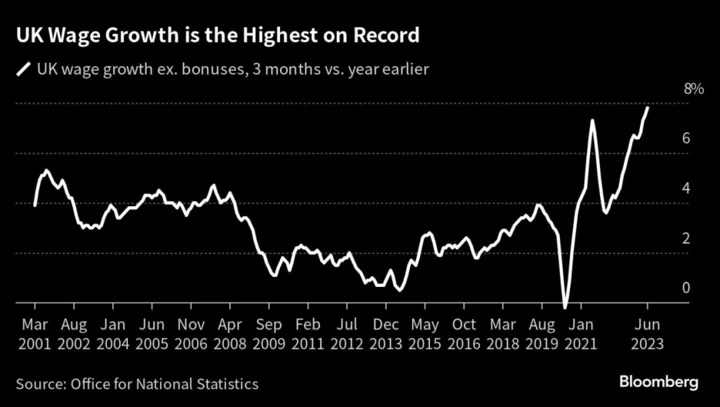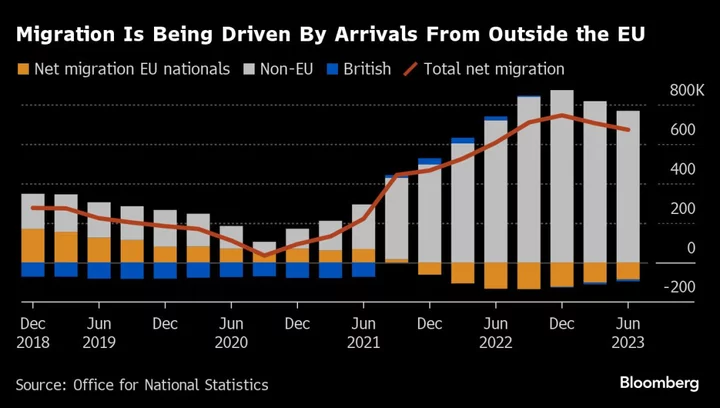UK wage growth accelerated to the strongest pace on record, adding to concerns that a tight labor market is feeding inflationary pressures.
Average earnings excluding bonuses rose 7.8% in the three months through June compared with a year ago. That was the highest since records began in 2001 and up from the previous reading of 7.5%, which was also revised up, the Office for National Statistics said Tuesday. Economists had expected a figure of 7.4%.
The pound extended gains after the release, rising as much as 0.3% to $1.2721.
The Bank of England is worried that soaring pay is pushing up prices across the economy. Policy makers led by Governor Andrew Bailey have said further signs that those pressures are persisting could result in another increase in interest rates.
The figures are the first of two batches of economic data that will guide the BOE’s next rate decision on Sept. 21. Investors have almost fully priced in a quarter-point increase in the UK central bank’s key rate to 5.5%, which would be the highest since early 2008. But the risk of a bigger hike next month has subsided after a drop in the headline inflation rate reported last month.
Economists expect UK inflation will fall again on Wednesday when July’s data is released. The Consumer Prices Index is forecast to slide to 6.7%, the lowest since the start of last year but still more than triple the BOE’s 2% target.
The ONS report on jobs published Tuesday showed further signs that the labor market is loosening. Unemployment rose to 4.2% in the three months through June, up from as little as 3.5% in August 2022.
--With assistance from Alex Mortimer and Eamon Akil Farhat.









